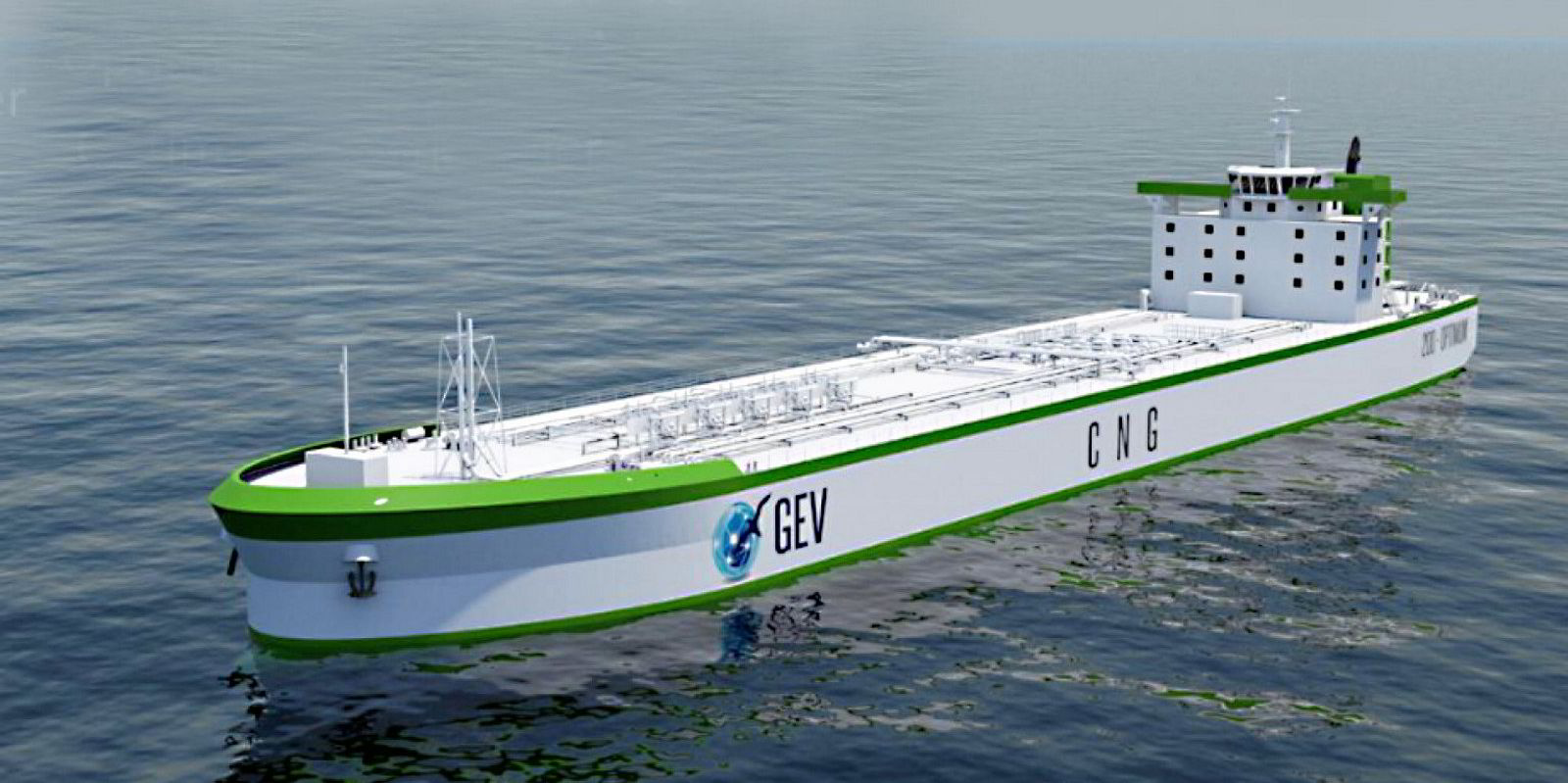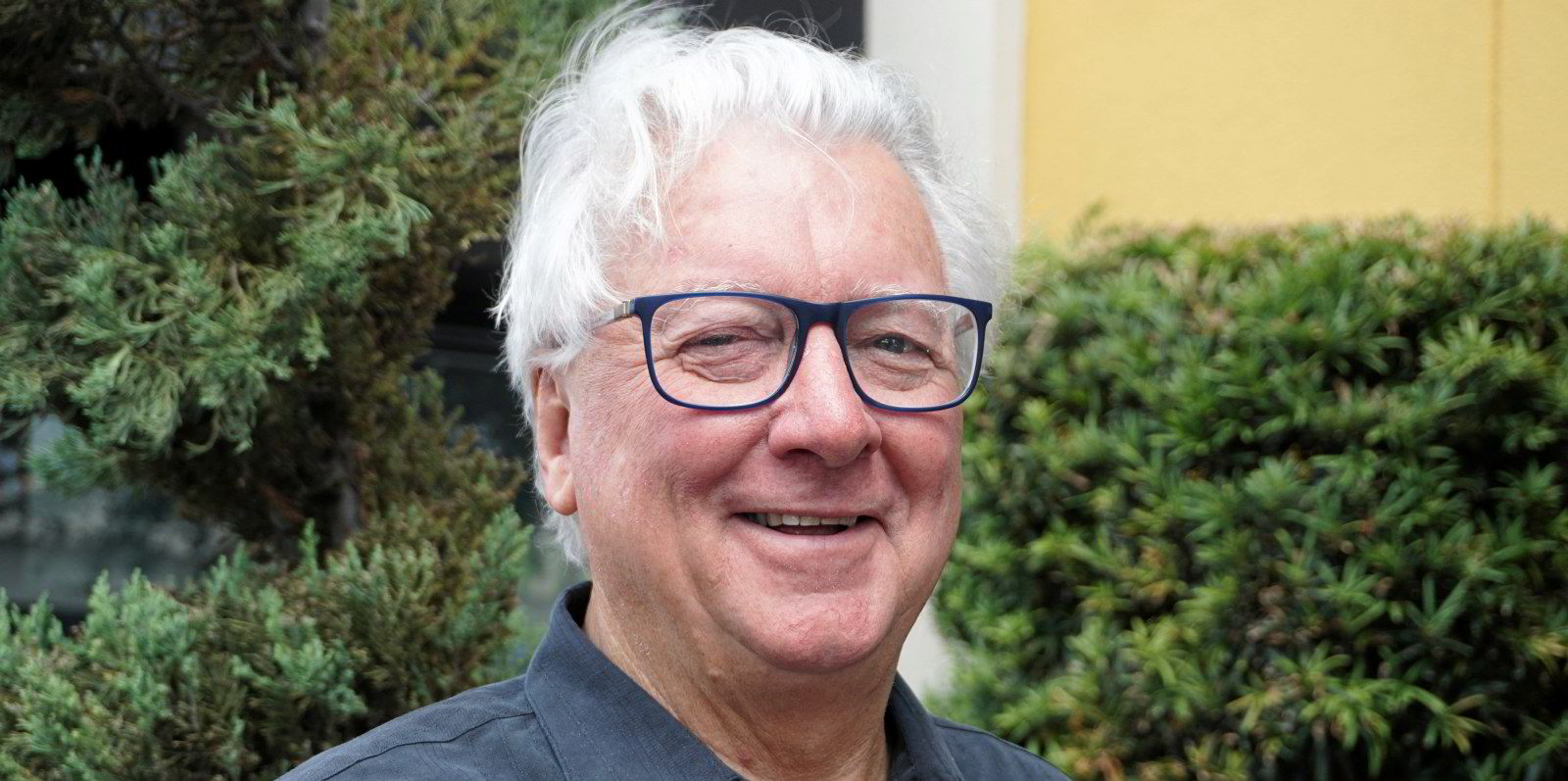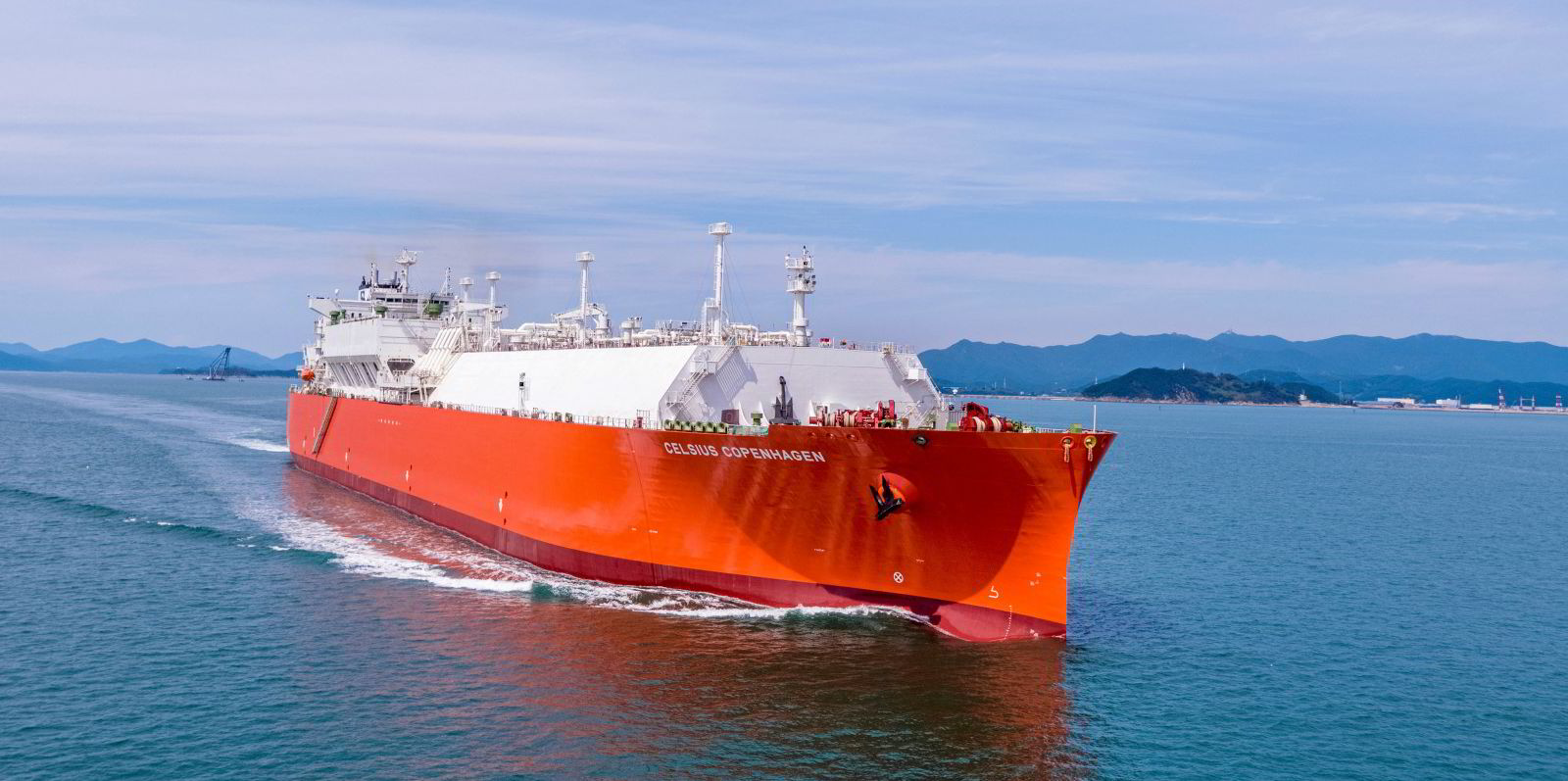Global Energy Ventures is confident its new compressed natural gas (CNG) ships will have a big advantage over LNG carriers as charterers place more emphasis on cutting carbon emissions.
The Australian company said a study, carried out by its own experts and then peer-reviewed by professional services company GHD, showed the CNG vessels will reduce the carbon footprint of gas transport by more than 50% over the full cargo cycle.
Sydney-listed Global Energy, which is poised to order eight CNG Optimum ships in China, compared an LNG liquefaction-to-regasification model to a CNG compression and decompression journey.
The study was based on a cargo of 200 standard cubic feet per day (MMscf/d), or 1.5m tonnes per year of LNG, over 500 nautical miles (926 km).
Less intensive
CNG was demonstrated to be less emissions-intensive by a factor of three to four.
The company's CNG project could save 500,000 tonnes of CO2 emissions per year, Global Energy said. This is the equivalent of taking 110,000 passenger vehicles off the road.
A 2020 study by the International Council on Clean Transportation claimed that, in some cases, LNG can produce more emissions than heavy fuel oil over a 20-year period.
Earlier this month, Singapore's Pavilion Energy signed a long-term deal to buy LNG from producer Qatar Petroleum, with greenhouse gas emissions measured from well to discharge port.
The 10-year sale-and-purchase agreement will see Qatar Petroleum subsidiary QP Trading provide up to 1.8 million tonnes per annum of LNG to the Singapore gas buyer's Pavilion Energy Trading & Supply.
Each cargo delivered under the 10-year agreement between Qatar Petroleum’s trading arm and Pavilion Energy will come with a statement of how much greenhouse gas emissions it caused.
The cargoes will be delivered to Singapore from 2023, and each will be accompanied with a statement on the greenhouse gas emissions, which will include the shipping aspect of the deliveries.
Pavilion said it expects the type of quantification and reporting methodology used to become standard within the industry.
Global Energy told TradeWinds that if this trend continues, there is an opportunity for a CNG company.
There has been an increasing focus on carbon-neutral LNG cargoes, with companies such as Abu Dhabi National Oil Co and Japan's JERA Global Markets, along with Shell and several of its Asian customers, announcing carbon offsetting for LNG shipments.
Total also shipped its first carbon-neutral LNG cargo in October.
New designs coming
In the same month, Global Energy unveiled what it hopes to be the world's first compressed hydrogen carrier.
The H2 Ship will transport the fuel from Australia to the Asia-Pacific region, drawing on the company's expertise in CNG vessels.

Global Energy said it wants to be an early mover in the carbon-free technology.
The H2 Ship will have a storage capacity of up to 2,000 tonnes (23m cbm) of compressed hydrogen.
But Global Energy has stressed the new project does not detract from its CNG ambitions. A deal for up to eight CNG Optimum 200 vessels is lined up at Yantai CIMC Raffles Offshore in China, but a final contract has not been signed yet.






